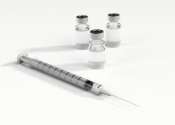What's behind the worldwide shortage of cholera vaccines? For starters, they're only made by one company
In February 2024 the World Health Organization announced southern Africa was suffering the deadliest regional outbreak of cholera in at least a decade. At the epicenter of the disaster were Malawi, Zimbabwe and Mozambique, ...
Mar 12, 2024
0
0









